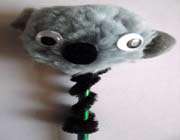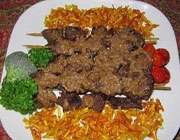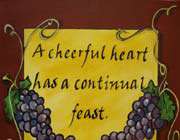
دنیای زبان انگلیسی ( بهروزپور )
لغات و اصطلاح .داستان کوتاه . شعر.جوک .ضرب المثل.اشپزی.رمان. نمایشنامه.متن دوزبانه
دنیای زبان انگلیسی ( بهروزپور )
لغات و اصطلاح .داستان کوتاه . شعر.جوک .ضرب المثل.اشپزی.رمان. نمایشنامه.متن دوزبانهزبان انگلیسی (۱)
English is a West Germanic language that arose in the Anglo-Saxon kingdoms of England and spread into what was to become south-east Scotland under the influence of the Anglian medieval kingdom of Northumbria. Following the extensive influence of Great Britain and the United Kingdom from the 18th century, via the British Empire, and of the United States since the mid-20th century,it has been widely dispersed around the world, becoming the leading language of international discourse and the lingua franca in many regions. It is widely learned as a second language and used as an official language of the European Union and many Commonwealth countries, as well as in many world organisations. It is the third most natively spoken language in the world, after Mandarin Chinese and Spanish.It is the most widely spoken language across the world.
Historically, English originated from the fusion of languages and dialects, now collectively termed Old English, which were brought to the eastern coast of Great Britain by Germanic (Anglo-Saxon) settlers by the 5th century – with the word English being derived from the name of the Angles, and ultimately from their ancestral region of Angeln (in what is now Schleswig-Holstein).A significant number of English words ......
ادامه مطلب ...شش کاراکتر در جستجوی نویسنده(نمایشنامه)
Six Characters in Search of an Author (Italian: ) is a play by the Italian writer Luigi Pirandello.
The play is a satirical tragicomedy. It was first performed in 1921 at the Teatro Valle in Rome, to a very mixed reception, with shouts from the audience of "Manicomio!" ("Madhouse!"). Subsequently the play enjoyed a much better reception. This improved reception was helped in 1925 when, with the third edition of the play, Pirandello provided a foreword clarifying the structure and ideas contained in the play. It played in 1922 on Broadway at the Princess Theatre.
Characters :
The Father - Originally married to The Mother and insisted on The Son being sent off to live in the country. Afterwards, he hired another man who worked as a clerk for him to take The Mother away. Later, he may or may not have an affair with The Stepdaughter, until The Mother interferes. When he learns that The Mother's lover died, he brings her, The Son, The Stepdaughter, The Child, and The Boy back to live with him.
The Mother - Originally married to The Father, she is taken away by a man her husband employs. She has three children, The Boy, The Child, and The Stepdaughter with the second man and has The Son with The Father. It is mentioned that her real name is Amalia.
The Son - The son of The Father and The Mother. To make him stronger, the father has him sent off to the country to live with a wet nurse when he is a baby. Therefore, he grew up not knowing his parents and dislikes them. He also dislikes his stepfamily, not considering them a part of the family.
The Stepdaughter - The spirited daughter of The Mother and her second husband. She is employed by Madame Pace (implied to be as a prostitute) and after she is "two months an orphan", she has an incestuous relationship with The Father. It is stated that she runs away from home later in the story. According to her, she went to the author of the story constantly, trying to get him to finish the tale.
The Boy - The middle child and only son of The Mother and her second husband. He is disliked by The Stepdaughter, who thinks he is an idiot. He never speaks during the play. At the end of the play, he commits suicide by shooting himself with a revolver.
The Child - The youngest daughter of The Mother and her second husband. She is the favorite of The Stepdaughter. It is mentioned once that her name is Rosetta. She never speaks during the play. At the end of the play, she drowns in a fountain she was playing in, although The Son tries to pull her out.
Madame Pace - Employer of The Mother and (later) The Step-Daughter. She runs a brothel out of her store. She only appears for a short period of time in the play, when The Stepdaughter and The Father perform their scene in the shop together. She speaks in a comical jargon "half Italian, half Spanish".
The Company:
The Director, The Manager, Leading Lady, Leading Man, Second Lady, The Ingenue, Juvenile Lead, Other Actors and Actresses, Property Man, Prompter, Machinist, Manager's Secretary, Door-keeper, Scene-Shifters.
ادامه مطلب ...Koala Pencil Topper
Koala Pencil Topper
You never need to be too far away from a koala with our cute little koala pencil toppers! Make one for yourself and some for your friends too!
You will need:
• A large grey pompom
• 2 small grey pompoms
• Pipe cleaner (chenille stem)
• Scrap of black felt
• Wiggle eyes
• Tacky glue
ادامه مطلب ...Kinds of Persian Kabab
Kinds of Persian Kabab
part 1
Kabab or Kebab ( Persian, Arabic): Kabab کباب, Turkish: kebap, is a wide variety of meat dishes originating in Persia and later on adopted by the Middle East and Asia Minor, and now found worldwide. In English, kebab with no qualification generally refers more specifically to shish kebab served on the skewer. In the Middle East, however, kebab includes grilled, roasted, and stewed dishes of large or small cuts of meat, or even ground meat; it may be served on plates, in sandwiches, or in bowls. The traditional meat for kebab is lamb, but depending on local tastes and taboos, it may now be beef, goat, chicken, pork; fish and seafood; or even vegetarian foods like falafel or tofu. Like other ethnic foods brought by travellers, the kebab has become part of everyday cuisine in many countries around the globe.
KABAB (kebab, kabob, cabob), a popular dish which traditionally consists of meat cut in cubes, or ground and shaped into balls; these are threaded onto a skewer and broiled over a brazier of charcoal embers. After the kabab is cooked, it is placed on a platter or tray and pulled off the skewer with a piece of flat bread. Because of the smoke produced from the drops of fat that fall on the charcoal, kabab is usually made in the open air, normally in the courtyard of the house. As a general term, it applies to all kinds of food broiled directly over charcoal, wood, or recently gas, with or without the use of a skewer.
ادامه مطلب ...Indonesian Proverbs
Indonesian Proverbs
1. A fire will sear and the sun burn yet more, but neither can match the ardor of a man's heart.
2. A man finds what he takes to be small; it will only be big again when he loses it.
3. A moth will eat the finest linen.
6. Calm water does not mean there are no crocodiles.
7. Death is the bride of life.
8. Different fields, different grasshoppers; different seas, different fish.
9. Different men have different opinions; some like apples, some onions.
10. Don't stay on the dew until the sun reaches its high
ادامه مطلب ...برگ
A LEAF
by Aileen Fisher
If I were a leaf
(but I wouldn't be)
I'd have to be tied
to a tree, tree, tree.
I couldn't walk off
(or skip or run)
and my nose would get burned
by the sun, sun, sun.
In summer I'd roast,
(in winter I'd freeze)
and all through October
I'd sneeze, sneeze, sneeze.
http://www.teachingfirst.net/Poems/Autumn.html#leaf



